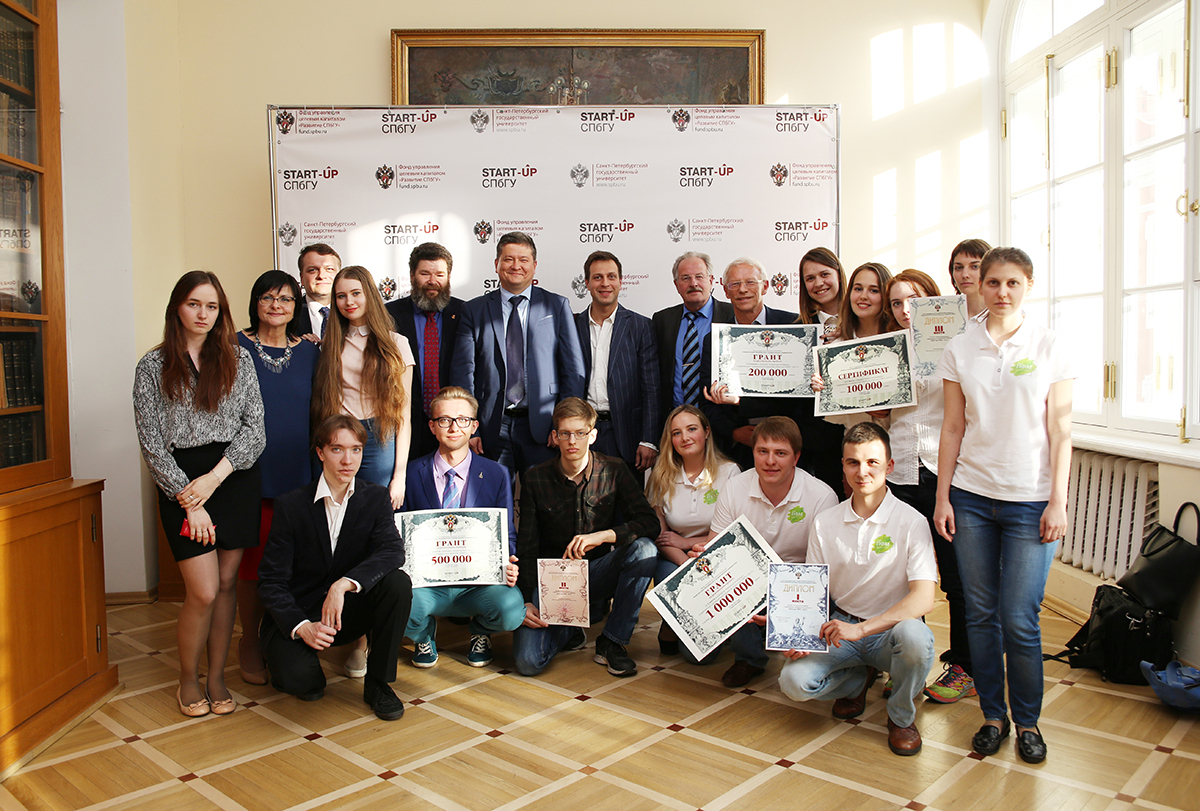The Student Start-Up Project to Be Recognised as the Graduation Thesis

This year’s winners of the SPbU Start-up – 2019 competition, along with the winners of other start-up contests, will be able to present their projects as graduation theses. The new rules will apply to St Petersburg University students at all levels: bachelor’s, master’s, specialist’s and doctoral. These young entrepreneurs will need to make their way onto the winners’ list, give a report on their participation in the project and then defend it. The first competition to be held according to these new rules will take place this spring.
These innovations became possible after changes were made in the University regulation that takes into account students’ entrepreneurial achievements. For a student to defend their start-up as a graduation thesis, they need to satisfy five conditions. The first is that the start-up must be an applied research project or an innovative, high-technology business model with the potential to become commercially successful and which was created as part of a start-up competition.
The second condition concerns what is required of such a competition: it can be held by either St Petersburg University or by any other educational organization which is included in the top 300 established international rankings (for example, the Academic Ranking of World Universities, the Times Higher Education World University Rankings, or the QS World University Rankings). There is, however, one important consideration: the results of the competition must be announced before the date on which the summarized version of the graduation thesis is to be submitted.
The first defences of start-up projects in lieu of graduation theses will take place at St Petersburg University this coming spring after the final round of SPbU Start-up – 2019, which will be held on 25 April.
It is also required that the winners be assessed by an examination committee, a board of experts composed of potential investors. In addition, a student must be a member of the winning team, and an academic and methodological commission that integrates several fields of study must establish that the project idea corresponds with the student’s academic program. The student must also be admitted to the end-of-course assessment and appear at the defence to make a report and reply to questions posed by the examination committee.
Students at St Petersburg University currently post the texts of their graduation theses on Blackboard. In the case of start-ups, they will have to download several new documents onto their online account: the project’s business plan, the final presentation, an account of the participant’s contribution to the start-up and the winner’s certificate.
Thirteen teams are going to vie for the title of the best start-up this year. Among the finalists are the following projects: batteries to be used in the extra-low temperatures of the Arctic region, a quick test for early detection of Parkinson’s disease, and a beverage that would reduce the craving for alcohol. The top prize that can be won by undergraduates and postgraduate students is a grant of up to 1,300,000 rubles, to be used to set up their own business. More details about the competition can be found on the site of the University’s Endowment Fund.
“The competition’s council of experts includes established business leaders and respected academics, along with representatives of governmental and financial institutions,” commented Marina Lavrikova, the University’s Senior Vice-Rector for Academic Affairs, “The competition gives students a unique opportunity to show what they can do and perhaps even be offered a job. Winning the competition is the best evidence that a student possesses all of the requisite business qualities that today’s employers are looking for.”

